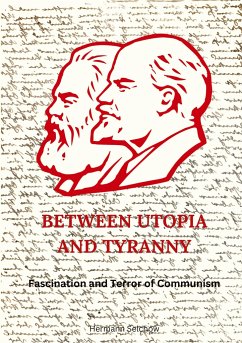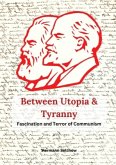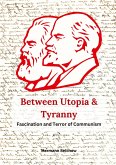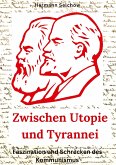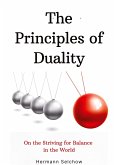Dear readers,Welcome to my new book, "Between Utopia and Tyranny" which delves into one of the most captivating and unsettling phenomena in human history: communism. In the following pages, we will explore the depths of this ideology-an ideology that embodies both utopia and tyranny."Between Utopia and Tyranny" is an extensive examination of the ideology of communism, its origins, its practical implementation, its recurring failures, and its global impact. From the early beginnings of the communist movement to the present-day consequences of communism, this book provides a detailed and thorough analysis.Communism has a long and complex history, beginning with the birth of the idea in the 19th century. We will take a closer look at the theories of Karl Marx and Friedrich Engels, who laid the foundations of communist thought. We will also examine the political movements that established communism as a revolutionary force.Undoubtedly, communism is one of the most influential political theories of the 20th century. It promised a world where equality and solidarity would prevail, where people would live free from exploitation and oppression. This utopian vision attracted numerous individuals and fascinated them with its enticing promise of a better society. However, while the idea of communism may seem alluring at first glance, we must not forget its dark side. The history of communism is marked by violence, oppression, and the loss of fundamental freedoms. The communist regimes of the 20th century claimed countless lives and led entire nations into ruin.This book takes on the challenging task of shedding light on both the captivating allure and the cruel reality of communism. It invites readers to consider the ideology from various perspectives and critically question it. We will not only explore the theoretical foundations of communism but also examine specific historical events in which communism was put into practice.A particular focus will be on the people who experienced communism firsthand. We will read their stories and endeavor to understand the complexity of their experiences. Behind the abstract concepts of communism, there are individuals with hopes, fears, and dreams. Their voices deserve to be heard.It is important to note that, despite the author's personal experiences, this book is not an advocacy for or against communism. Rather, it is an invitation for reflection and dialogue. By engaging with this ideology, we can better comprehend not only the past but also draw conclusions for the present and future. As communism still has supporters and proponents striving to seize political power, it is crucial to recognize and counteract the associated risks and challenges.Additionally, we will consider those who, despite the horrors of communism, still cling to its appeal. How can we explain that communism continues to exert attraction and find followers even today? What hopes and aspirations underlie these ideas? These questions are of great significance in understanding current political and societal developments.It is essential to recognize that communism cannot be viewed as an isolated phenomenon. It is intricately intertwined with the history of the 20th century and interacts with other political and social movements. Therefore, we will also delve into the global connections and analyze the influence of communism on other ideologies, political movements, and societal changes.Given the nature of a book like this, it is natural for there to be different viewpoints and opinions. I am aware that communism remains a controversial topic, and readers will hold diverse perspectives. Hence, I encourage you to contribute your thoughts and ideas and actively participate in the debate.I wish you an engaging read and hope that this book opens new questions, insights, and perspectives for you.Hermann Selchow
Bitte wählen Sie Ihr Anliegen aus.
Rechnungen
Retourenschein anfordern
Bestellstatus
Storno

